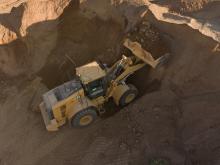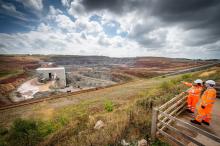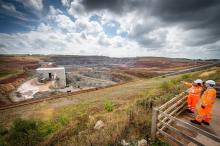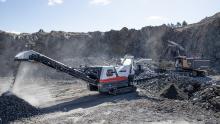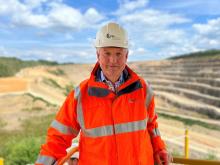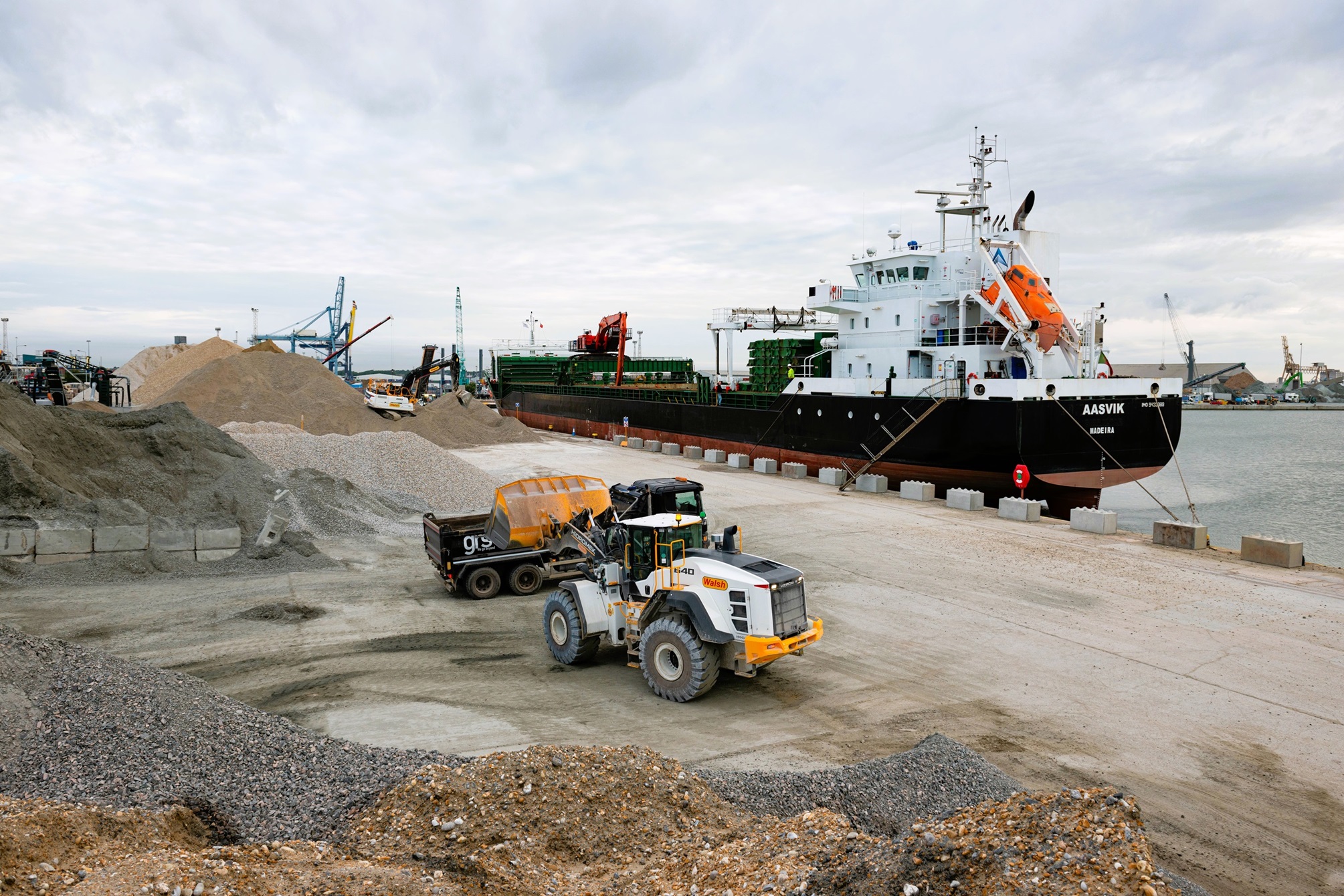
Douglas Galbraith doesn't hold back when asked to assess the health of the building materials market in the southwest. "It was already difficult, but now the feeling from many in the industry is that it's in terrible shape. I was chatting to one company MD at an Institute of Quarrying Fellows' Lunch, and he reckons his numbers are down 40%.
"Looking at what we expected throughout this year, there is still negligible support for housebuilders or buyers. You've got [interest] rates being jacked up, not addressing the source of inflation. There have also been cancellations of major projects, which is not helping confidence. There doesn't seem to be a short-term plan, let alone a mid-to-long-term plan. We're in for a rough 2024 as an industry. One British building material supply company has a new slogan, 'Survive to 25!' which, without some support or a clear direction from the government, could well be the case."
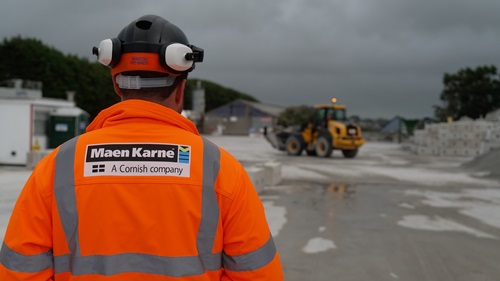
Galbraith says GRS has the people, ambition, capability and financial backing to grow in a constricted market, an approach that is "winning many friends". He continues: "The Group is looking at every option and avenue that complements our core skills in heavy-side construction materials."
Galbraith's perspective on a constricted market is echoed in the latest quarterly UK building materials market data from the Mineral Products Association (MPA), which found a further deterioration in demand for heavy-side materials over the summer.
The new survey – an important bellwether of wider construction activity – reveals the extent of the slowdown in British housebuilding activity, compounded by continuing delays in key infrastructure projects, particularly in roads, due to persisting cost pressures and planning challenges.
The third quarter saw notable declines in the sales of ready-mixed concrete and sand & gravel, with drops of 15% and 12.2%, respectively. For ready-mixed concrete, the magnitude of the decline is comparable to Q1 2009, when the global financial crisis severely impacted macroeconomic and construction conditions. Mortar sales have also dipped, contracting by 8.7% in Q3 2023 due to the sharp downward trend in housebuilding activity since the latter part of 2022.
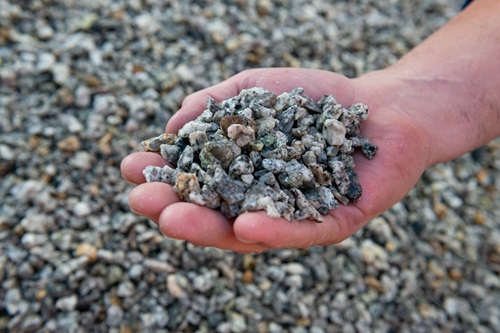
Conversely, pockets of regional growth, notably in the east of England and the southeast, have helped to avert a quarterly decline in the demand for asphalt and crushed rock. Asphalt sales increased by a modest 1.6%, while crushed rock saw a marginal increase of 0.3%. Despite fluctuations in materials volumes every quarter, the demand for all mineral products monitored by MPA has declined for most of the past 18 months.
Growth in the demand for mineral products to deliver major infrastructure projects, including HS2 Phase 1, has been more than offset by a weakening overall pipeline of projects. Construction investment has been hit by the triple-whammy impact of cost inflation, rising interest rates, and weaker business and consumer confidence, all weighing heavily on the financial viability of construction projects and housing affordability.
Mineral products markets have also been impacted by repeated delivery setbacks in schemes to upgrade the strategic road network managed by National Highways. Outside of Covid-impacted 2020, asphalt sales volumes are currently at their lowest since 2014.
Other industry business surveys have indicated stagnation in the construction industry over much of the past year, but there has been a particularly marked slowdown since mid-July, as housing demand continues to adjust to higher interest rates and reduced affordability. Mortar sales, closely linked to housebuilding activity, are leading the decline in market sales, with an annual drop in volumes by 11.8% from the 12-month to September 2023.
On a more positive note, Galbraith explains how GRS's major April 2023-announced £60 million refinancing deal with Wells Fargo Capital Finance has given GRS the financial clout to ride out its tough trading environment and explore growth opportunities.
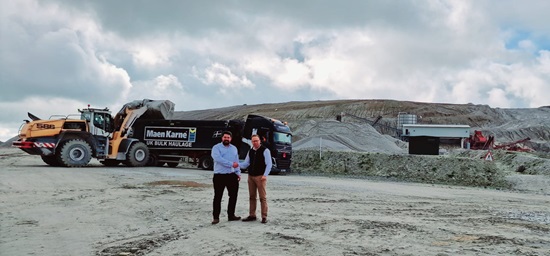
Galbraith notes that the refinancing package enabled GRS to acquire a 50% stake in Devon-based secondary materials producer Ocean Blocks and Aggregates in a move announced in October 2023. The deal strengthens GRS's ability to serve the construction industry in southwest England and boosts its capacity to supply sustainable secondary aggregates into southeast England using its established rail and marine freight network to achieve the lowest carbon footprint.
The transaction also opens up new local markets for Ocean, which has access to millions of tonnes of granite arising as a by-product of Imerys' china clay mining operation at Lee Moor near Plymouth, Devon. Ocean has a new on-site Matec processing plant that washes and grades the material to produce high-quality aggregates for the construction industry, supplies a bagging plant, and uses the product to make concrete blocks for housebuilders in the area.
Galbraith says that through Newquay-headquartered Maen Karne, GRS already utilises secondary aggregates from the china clay industry to supply the southwest England construction industry. Last year, GRS became the first to move material by sea into Tilbury Docks for washing, processing and onward distribution by road, rail and river to meet the demand for materials across London.
Known for its quality and consistency, granite from china clay mining (often referred to as 'stent') is highly rated by leading sustainability assessment methods as a genuine alternative to primary aggregates. Transporting it into London and the southeast by rail and sea freight means generating a fraction of the carbon of newly quarried stone.
Britain's construction industry uses around 250 million tonnes of aggregates yearly, but less than 5% of that presently comes from secondary sources, so GRS sees huge growth potential for the material.
"People are starting to understand the role GRS plays and the value we add for customers," says Galbraith, a former full-time Operations Manager at Aggregate Industries' Bardon Hill Quarry in Leicestershire who joined Maen Karne as Operations Director in June 2020 and has been Managing Director since 1 July 2022.
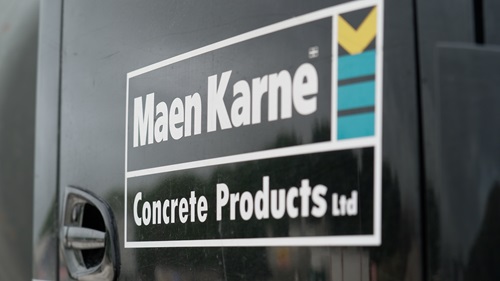
In addition to the Maen Karne's Melbur Works, which is home to their HQ as well as the Blocks and Bagging side of the business, the company has a site in Upton Towans, Hayle; Chywoon Quarry in Longdowns; and two more facilities in Uffculme near Cullompton, and Newton Abbot.
Galbraith continues: "Maen Karne's Aggregates and Muck Away businesses fit well with GRS Trading, and our Bagging and Blocks operations fit with GRS Building Products. We also produce ready-mixed concrete, and we run a national haulage fleet of 12 trucks running up and down the country daily. Most recently, we've set up an office in Plymouth to support the growth of our aggregates business and the growth of Ocean."
Asked about the importance of GRS's recently gained 50% stake in Ocean, Galbraith responds: "The value of secondary aggregate has long been overlooked, and we believe it can play a bigger role in the [UK building materials] market. Some major aggregate producers with carbon and value locked up in their primary products also recognise this and are buying recyclers [companies] to dilute their carbon footprint and boost their environmental credentials."
Galbraith says companies offering the highest quality recycled and secondary aggregates will be best placed to capitalise on the rapidly growing demand for greener building materials. "Recycling aggregates into concrete is still regarded by many as a no-no, yet here in the southwest, secondary aggregates are all that goes into concrete. That's the beauty of secondary aggregates: it's not recycled, yet all the carbon has been accounted for in the primary mining and production process.
"So you have pure granite previously surplus to requirements stockpiled in a massive heap that we're working through. We can dovetail in with the recycling market, working with, among others, RIG (Recycle it Global – a Truro, Cornwall-based one-stop-shop offering sustainable disposal of technical waste). As a result, we are the only ones in the southwest that offer the full suite of products and services."
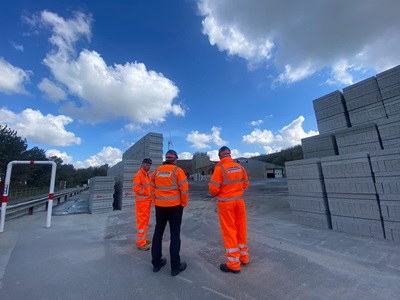
Returning to the significance of GRS's partnership with Ocean, he says: "You look at the major [national infrastructure] projects based around the [English] coast and our short [transport] haul from Lee Moor to Cattedown or Victoria and onwards by sea freight.
"Using the local port facilities, we can ship Ocean's granite materials to any port with the right unloading facilities and onwards via rail or road. Better still, because of their neutral white-silver colour, Ocean's products are great for precast concrete and other industrial uses because they can take a dye."
Focusing on Maen Karne and Ocean's home region market, Galbraith adds: "Anywhere southwest of Taunton in Somerset has been a kind of 'no-man's land' for recycled [aggregates], but that's changing, and by looking at secondary and recycled aggregates as complementary to each other, we're going to really make a difference.
"If we work with the likes of RIG to do clever stuff to extract sand and aggregates from muck and process what is left into quality manufactured topsoil, we have made a massive difference to the planet in terms of resource efficiency and waste reduction."
Galbraith says Maen Karne has boosted its admirable sustainability credentials by switching the bulk of its site fleets to run on HVO (hydrotreated vegetable oil) rather than white diesel. "We've run them on HVO for around a year to 18 months. It took a while to fully implement the switch, which has been expensive per unit. We have found that HVO has been fine on the trucks, but it's been a little gummy on the mobile equipment. We've just had an injector failure on a shovel, but we'll get through stuff like that because it's worth it to make a real difference to the future of the planet."
In January 2023, GRS, which employs 800 people in the UK, plus a broad network of independent contractors in its 20 million tonnes/year material handling operation, set out its drive towards a sustainable business model in its first formal Sustainable Development report. The landmark document outlined the company's ESG (Environmental, Social and Corporate Governance) framework of the 'three Ps' – People, Planet and Practices – highlighted GRS's achievements to date and stated its main sustainability goals for the future.
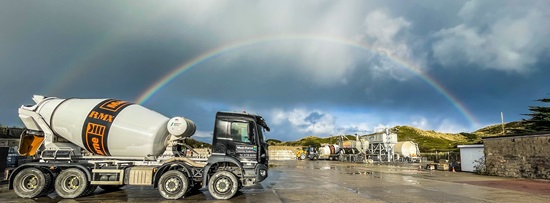
GRS's sustainable development highlights in 2021/22 included launching the Let's Talk mental health campaign as part of the company's well-being strategy – which has gone on to win high-profile industry awards – and almost 40% of GRS people took part in formal training as part of their personal development. Additionally, 100 managers participated in 'emotional resilience' training to support their teams.
In 2021/22, GRS increased its rail volumes to 20% of its delivered materials – more than any other year – secured a long-term supply of aggregates derived from UK tungsten mine waste and opened its state-of-the-art processing plant at Tilbury to bring low-carbon aggregate to London.
In the debut Sustainable Development report period, GRS also restructured its businesses into three core divisions – Trading, Building Products and Integrated Solutions – to improve efficiency and accelerate its sustainability journey. In the same year, the company achieved record turnover, giving it the scale and the means to invest in sustainable technologies. GRS also increased its community support with operational site improvements and a new employee volunteer scheme.
"We've got major construction companies wanting to work with us because we are genuinely working hard to deliver on the sustainability side," says Galbraith. "We believe we are ahead of the curve with things like our switch to HVO, our internal supply of secondary materials, and our friendly local partnerships like RIG regarding recycled materials and management of muck away."
Commenting on the impact of the UK Government's October 2023 decision to scrap the northern leg of the HS2 high-speed rail link between Birmingham and Manchester, Galbraith says: "We've not been affected down here in Cornwall, but GRS is a key supply chain partner, and so there will be some longer-term impact, although there's plenty of work for the Group to go at in the short-to-mid-term."
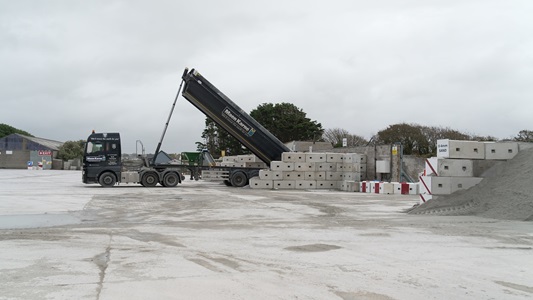
Another UK infrastructure megaproject GRS is looking at is the £20 billion construction of Sizewell C, a 3,200 MWe nuclear power station with two EPR reactors in Suffolk, England. The NNB Generation Company, a subsidiary of EDF Energy, is delivering the project, with EDF Energy and the UK Government each having a 50% stake in the project. Sizewell C will reportedly meet 7% of the UK's energy needs for at least 60 years on its completion, earmarked for 2031. Needless to say the project will require a huge volume of crushed rock aggregate, all of which will have to be brought in from elsewhere.
Focusing on large infrastructure projects in Maen Karne's home patch, Galbraith says: "Two of Cornwall's biggest ever road jobs are going on at the same time – the new [£330 million] A30 dual carriageway between Chiverton and Carland Cross, and the new A391 St Austell to A30 link road, with us being the sole aggregate supplier to the latter project. We are supplying up to 2,000 tonnes of secondary aggregates daily. Alun Griffiths is the lead contractor on the A391-A30 [£86 million, 3.9-mile] link road works."
Galbraith summarises his UK building materials industry perspective: "Times are tough, especially in the southwest, and they are going to get tougher for at least the next year, but, if you take a longer-term view, things feel positive given the industry's and customers' greater focus on sustainability. I will say that chasing cash is king, as always, with operating cash flow critical. The [Wells Fargo Capital Finance] refinancing deal has given us [Maen Karne-GRS] and Ocean a lot more security, and I believe we are well ahead of the curve in secondary and recycled aggregates. That kind of advantage will be hugely important for the years ahead."

